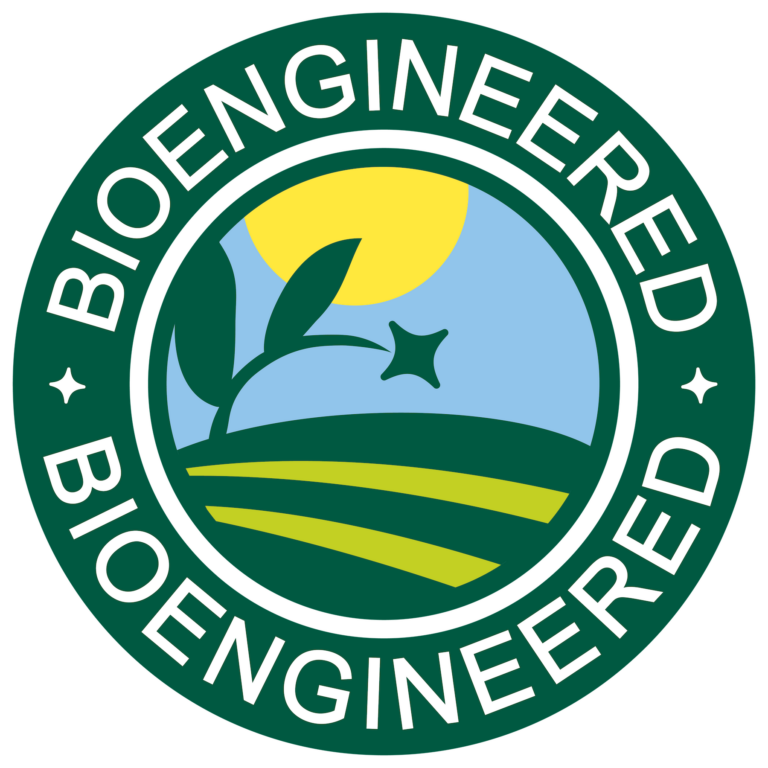BE Disclosure Standard Compliance Date Nears
It has been three years since the publication of the National Bioengineered Food Disclosure Standard proposed rule (pdf). And there are only seven months left for food businesses to be in compliance with the labeling requirements of the rule. To assist businesses in getting their labeling up to standard, TAG has developed a Q&A on the rule.
- What is the rule?
As of January 1, 2022, all foods subject to the Federal Food, Drug, and Cosmetic Act (FDCA) labeling requirements must include an appropriate disclosure if it contains a bioengineered food or ingredient. Although published by USDA AMS, it is not specific to USDA-regulated foods, rather the rule applies to all food manufacturers, importers, and retailers who package and label food for retail or bulk sale.
- What is a bioengineered food?
The BE Disclosure Standard defines bioengineered foods as those that “contain detectable genetic material that has been modified through in vitro recombinant deoxyribonucleic acid (rDNA) techniques and for which the modification could not otherwise be obtained through conventional breeding or found in nature.”
- How do I know a food or ingredient fits that definition?
AMS has posted a list of crops or foods that are available in a bioengineered form, for which regulated entities must maintain records. These include: alfalfa, apple (ArcticTM varieties), canola, corn, cotton, eggplant (BARI Bt Begun varieties), Papaya (ringspot virus-resistant varieties), pineapple (pink flesh varieties), potato, salmon (AquAdvantage®), soybean, squash (summer), and sugarbeet.
However, this list is not comprehensive as new bioengineered products continue to be developed, so any food must include the disclosure if it is bioengineered/includes a bioengineered ingredient of which the regulated entity is aware. AMS also developed a useful tool to determine whether a disclosure must be made.
- Are there any exceptions?
Yes, foods that are subject to the labeling provisions of the Federal Meat Inspection Act (FMIA), the Poultry Products Inspection Act (PPIA), or the Egg Products Inspection Act (EPIA) do not require disclosure unless the predominant ingredient would independently be subject to FDCA; or the predominant ingredient is broth, stock, water, or similar solution, and the second most predominant ingredient would independently be subject FDCA. Incidental additives, or products in which no modified genetic material is detectable are not considered bioengineered foods under the BE Disclosure Standard.
- What, exactly, do I need to put on the label for disclosure?
There are four disclosure options for bioengineered foods:
- On-package text (e.g. “bioengineered food,” or “contains a bioengineered food ingredient”)
- The USDA-approved symbol for bioengineered food (above)
- An electronic or digital link with instructions to “Scan here for more food information” or similar language that reflects technological changes and includes the phrase “call [1-000-000-0000] for more food information.”
- A statement “Text [command word] to [number] for bioengineered food information.”
All disclosures must be placed on the food product information panel adjacent to the manufacturer/distributor information or the principal display panel. Only if there is insufficient space in these areas may the required disclosure be placed in a different location, but it must be placed where it is likely to be seen by a consumer under ordinary shopping conditions. Additionally, in limited circumstances, certain foods that do not meet the definition of “bioengineered food,” but are derived from bioengineered food may be disclosed using the USDA approved symbol for food derived from bioengineering.
- What should I be doing now to ensure my foods are in compliance by 2022?
If you haven’t done so already, you will need to do a full review of all the ingredients in all your products. If any fit within the list (in #3 above) or are known to be bioengineered and do not meet any exceptions (of #4), you will need to reprint the product labels to include a disclosure (from #5).
Upon publication of the rule, USDA AMS set a voluntary disclosure period to allow food producers to begin updating their labels well ahead of the compliance date. So if you had not begun voluntary labeling over the last three years, you also will need to check all product you have in stock, because as of the mandatory compliance date (January 1, 2022), all bioengineered foods entering commerce must be labeled in accordance with the Standard.
- Can TAG help?
If you have any questions on the BE Rule, the foods you need to label, or how to do so – or would like consultation or assistance on labeling overall, contact TAG today – We can help!





